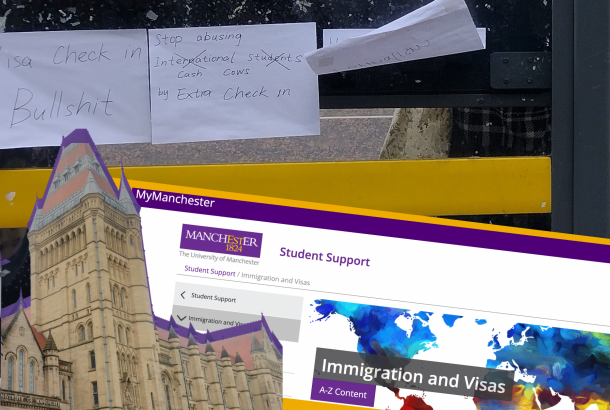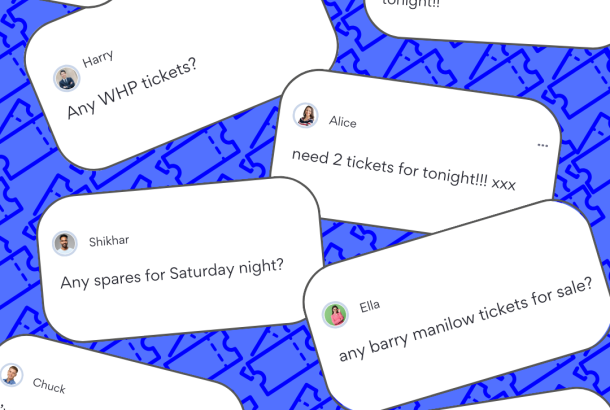‘Alone, unsupported, disposable’: UoM abandoned disabled students in switch to online learning

The University of Manchester has let disabled students down and potentially broken equality laws in its shift to online learning, according to a damning report published by a society and shared with The Mancunion.
The Disabled Students Society, alongside the Disabled Students Campaign and other volunteers, said they had been forced to put together a 61-page ‘accessibility report’, calling on University bosses to take action after a “significant influx in students” reached out to them for help.
The society allege that disabled undergraduates had been met with responses from the University that amounted to “this is your problem, not mine” and slammed Manchester’s leadership team for leaving them to shoulder the burden of supporting vulnerable students.
Students across the country are struggling with the transition to online learning, a model many universities have been forced to adopt following repeated Covid-19 lockdowns.
Facebook pages for Manchester students such as MSG and Uomlove are filled with stories of overworking and mental health, with Uomlove sharing helplines after receiving “an influx of submissions concerning mental health, wellbeing, and the exorbitant amounts of work the university is setting their students”.
This increased workload is even worse for disabled students, a number of whom use screen readers which “read at half the pace of an average abled person”.
For Jas Taylor, one of the Disabled Students Officers alongside Jess Edwards, this means their “reading lists regularly amount to over 30 hours of text a week”. A recent survey of students at UoM performed by the Disabled Students Society found that 77.3% of respondents felt overwhelmed by the amount of work this year.
“The time I have spent chasing my support this year feels like an insult”
– Jas Taylor, Disabled Students Officer
Madeline McLeod-Clarke, a disabled student post-liver transplant, with severe depression and general anxiety disorder still hasn’t “had an academic advisor meeting” and when she reaches out to her department she receives “unhelpful, blunt and sometimes blanket replies”.
Oliver Chippendale, a second year Psychology student with a severe bilateral hearing impairment who requires a note taker says “it has been left to me to set it all up”. He has to “provide the note takers with the Zoom links every day, for every individual Zoom session”, and the University is yet to provide his note takers with university logins creating more problems and confusion for Oliver.
This is a significant amount of extra administrative work falling on disabled students, who’s university work already takes longer to complete due to their disabilities. Syd King (he/they), Chair of the Disabled Students Society says with his screen-reader “mathematically, I should finish this book by June. My exam is in January”.

“I am alone, unsupported, and ultimately, disposable”
– Syd King, Chair of the Disabled Students Society
While this seems outrageous to many abled students, a book that will only be finishable by June is better than the common alternatives – online textbooks which cannot be read by screen readers at all or only read “the coding used to program the document”. In these instances disabled students, such as those with dyslexia “have been made to buy the book themselves” as it is not available as a hard copy in the library, or encouraged to print documents which are 90 pages or longer at the library; impossible for many disabled students as they are on the shielding list and therefore it would be dangerous for them to head into campus.
Under Section 20 of the Equality Act (2010) it is the university’s duty to make adjustments, “to take such steps as it is reasonable to have to take to avoid the disadvantage” and when relating to the “provision of information” ensure “the information is provided in an accessible format”.
“Since the move to online, a lot of these adjustments have been treated as optional, or at worst, completely denied without valid reason”
– Syd King, Chair of Disabled Students Society
But as the Accessibility Report highlights many of the issues facing disabled students following the transition to online learning are extremely easy to fix. The University of Manchester rolled out Microsoft Teams in the summer which provides more accurate live captioning, making it accessible for deaf and hard of hearing students, yet in the majority of cases live lectures are delivered on Zoom which has only recently begun providing captioning, but it is inconsistent and difficult to enable. Students are ‘compensated’ with inaccurate transcripts.
Madeline Webster-Harris, a 3rd Year Biology student with severe hearing loss, said: “Words were both translated and spelt incorrectly making the information being delivered incomprehensible. This has exaggerated effects in jargon heavy subjects such as STEM.”
When students have contacted their respective schools to ask for the Disability Advisory and Support Service (DASS) recommended change to be made, they have been ignored. When Syd King, 2nd Year Psychology with French student, contacted his school independently they “did not agree to change anything”. DASS have now contacted Syd’s school on his behalf, but are yet to receive a response.
Syd does highlight the hard work of some individual lecturers at the University of Manchester though, as his lecturer in the Language Centre “has familiarised herself with Teams independently, and will use this platform for our classes in the future”.
Furthermore, live lectures are not always recorded, requiring disabled students to be present and engaging at the same time as their abled peers, or miss out on key content. Students with Disabled Students Allowance (DSA) provided recording software aren’t sure if it is legal for them to use it as their tutors claim they cannot record lectures or seminars due to GDPR. Lissa Reynolds (she/they), a first year Drama and English Literature student with this type of software says the lecturer discussing GDPR makes her “too worried about using my software full stop in case it’s illegal and leaves me confused on when and where I’m allowed to use it”.

And other students such as Jas Taylor still haven’t received their DSA equipment at all and “have been struggling without it.” The DSA is a government grant, yet the students who have not yet received their government-mandated equipment have not been compensated with extra time to complete their studies.
With semester two online for the majority of students for the foreseeable future, it is even more imperative that the University of Manchester make these changes now.
Syd King (he/they), Chair of the Disabled Students Society issued the following statement when asked to comment: “The move to online learning has been challenging to everyone, especially given the current environment, but it has further highlighted how as disabled students, our needs are taken as optional, unimportant and to be done at the convenience of abled people.
“We pay the same price for this education as you, often, we have to work extra jobs, or search for grants, just to cover this cost alongside the hidden daily costs of being disabled. However, we are still given an education that is sub-par; lectures we cannot understand, material we cannot access, classes we cannot attend, and on top of this, we are made to feel as though it is our duty to right these wrongs, and to not get in the way of abled people as we do.
“This mentality is irreparably harming disabled people, something needs to change. We shouldn’t have had to make this report, it took months of our time, and hours of tears and effort that we didn’t have, but we had to, otherwise we will not be able to access the education that we are paying for.”
A University of Manchester spokesperson said: “The safety, wellbeing and learning outcomes of our disabled students is of the utmost importance to the University. We have received the report in question and recognise that there are some areas for concern in the issues raised, which we are taking very seriously.
“We are immediately setting up a Task and Finish Group to consider how we respond and take quick, effective action. It will be made up of senior representatives from the University’s Disability Advisory and Support Service, the Directorate for Student Experience, and the Institute for Teaching, Learning and Students. We will also be reaching out to the Students’ Union and Disabled Students’ Society to ensure we have their representation too.
“The Group will also ensure that any response is aligned with the University’s action plan being developed to address the recommendations of the ‘Arriving at Thriving’ national report on disabled students.”
You can read the accessibility report in full, or sign in support of the report and it’s findings.
This article is based on the first section of the report focusing on online learning, and is part of an upcoming series about the treatment of Disabled Students at UoM.







